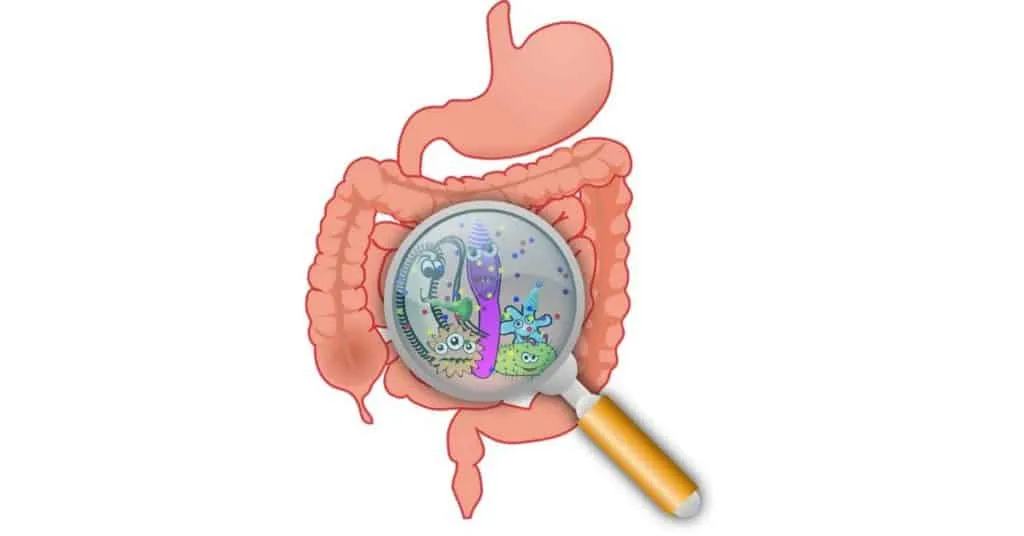Leaky Gut Syndrome
The term leaky gut has gained a great deal of attention over the past few years.
Officially known as “increased intestinal permeability”, it is a health condition in which the lining of the small intestine becomes damaged. This permits substances, like undigested food particles, toxins, and germs to reach your bloodstream causing severe irritation and inflammation.
This continued irritation may be the underlining cause of a number of illnesses and could even be linked to the development of a wide range of diseases.

What Causes Leaky Gut?
The lining of the digestive tract is just one cell layer thick. These highly specialized cells, called enterocytes, form a barrier between you, your bloodstream and immune system, and everything in the external world that comes in through your mouth like food, drink, bacteria, and toxins.
These cells are held together with proteins called ‘tight junctions’, these proteins form a protective barrier which ensures that everything you eat is processed in a manner your body can handle without you becoming sick. When these proteins, or tight junctions, break, you get “Leaky Gut Syndrome.”
Oftentimes, leaky gut is due to your diet. For me certain foods that I was eating on a daily basis, such as gluten, soy and milk, were being treated by my own body as foreign invaders that needed to be fought. As soon as I ate those foods, my entire body went into war, generating free radicals, which triggered an immune reaction – inflammation – which resulted in me feeling nauseous, fatigued and even experiencing joint-pain.
Leaky gut may also be brought on by medications including steroids, antibiotics or over-the-counter pain relievers such as aspirin and acetaminophen, which may irritate the intestinal lining and harm protective mucous layer.
Signs You May Have Leaky Gut
If you experience any of the following stomach problems, or if you have been diagnosed with any of the following disorders – leaky gut syndrome may be a factor in your ongoing condition:
- Stomach Ulcers
- Regular Stomach and Digestive Problems
- Chronic Bowel Disorders (Ulcerative Colitis, Crohn’s, etc.)
- Celiac Disease
- Colorectal Cancer
- Other Inflammatory Conditions (such as arthritis)
- Thyroid Disorders
- Fatty Liver Disease
- Diabetes (Type I and II)
- Regular Nutritional Deficiencies (despite regular consumption of foods high in the nutritional elements you are deficient in, leaky gut syndrome may cause you to experience nutritional deficiencies.)
How To Heal a Leaky Gut?
The secret to healing a leaky gut will be altering your diet and removing the foods your body treats as poisonous. On the recommendation of my nutritionist I removed gluten, soy, milk, refined sugar, and caffeine. For others it’s not so much what you eat as it is when and how often, many people find intermittent fasting to be their very own miracle cure for leaky gut syndrome.
For someone without any of the chronic gut issues mentioned (the severe ones such as autoimmune and other chronic issues), you can cure a not-so-perfect gut in anywhere within four to twelve weeks. This is a result of the fact your gastrointestinal tract is coated in enterocytes that immediately regrow, providing you an entirely new gut lining every three weeks.
The best way to figure out what foods your body doesn’t like is to do what is called an elimination diet which can be done through these easy steps:
- Identify your ‘trigger’ foods – You can do this by keeping journal for a few weeks and recording how you feel after eating something. Keep track of how food affects you after: 1 hour, 2 hours, 3 hours, etc. If there are certain foods or ingredients that cause you to feel sick, weak, tired, sore, etc. make a note of them.
- Stop eating all trigger foods for at least three weeks – Removing foods is the key measure in an elimination diet.
- During this time, carefully read food labels to be certain you’re really avoiding even trace quantities of those foods.
- Following three weeks, reintroduce one food / food group at a time. Eat the specific food in question and take note of how it affects you.
For individuals with more severe gut disorders long-term recovery may take significantly longer to achieve.
In Summary
Leaky gut syndrome is also called increased intestinal permeability. It is a condition where openings in the intestinal walls can widen, allowing germs, toxins and undigested food particles to pass through into your bloodstream which leads to inflammation and sickness.
As a means of dealing with a leaky gut you can start by cutting out any foods you identify to be trigger foods. Additionally (or alternatively) you may want to try intermittent fasting and focus on getting lots of immune boosting nutrients.






